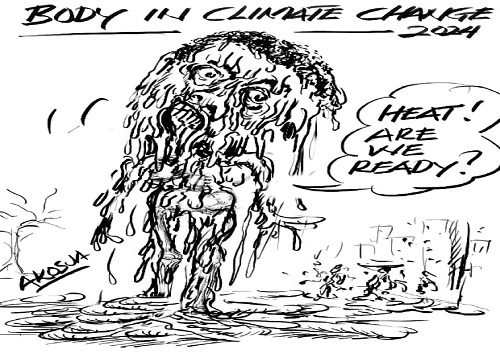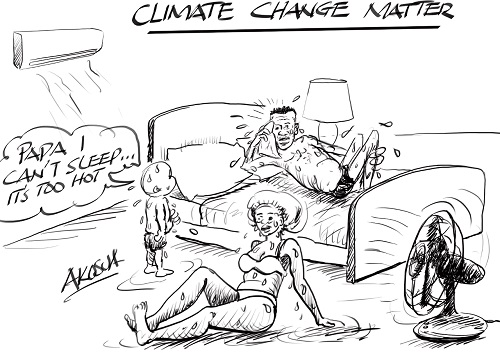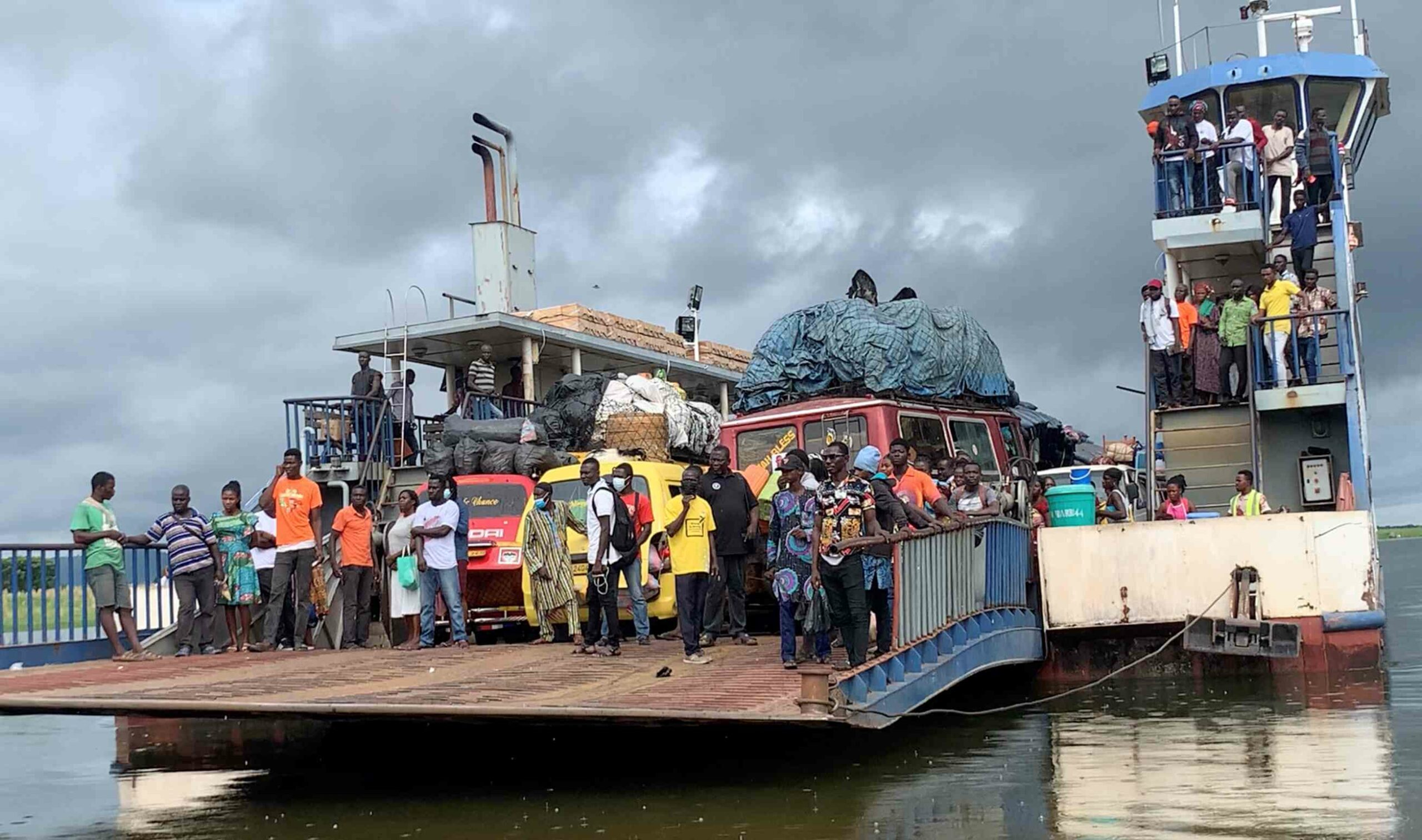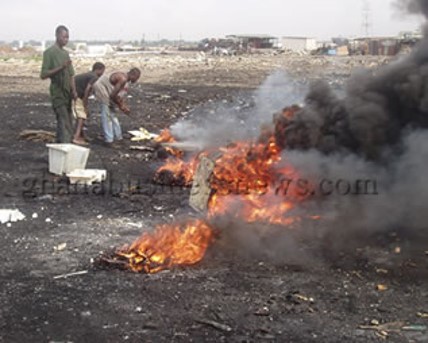
Ghana cannot effectively adapt to Climate Change unless key institutions, such as Government Departments, Research Institutions, Universities, National Disaster Management Organization (NADMO) and the Ghana Meteorological Agency, are strengthened and work together.
Professor Kwadwo Owusu, Department of Geography and Resource Development, University of Ghana, who made the declaration in Accra, yesterday, added that there was the need to strengthen the capacity of these institutions, not only to provide quality data critical to impact assessment, but also provide climate information that was timely communicated and accurate to support decision-making.
Prof. Owusu identified the Ghana Meteorological Agency as central to the institutional capacity development for climate change adaptation, adding that the co-ordination of policies and programmes by the various stakeholder institutions was another critical factor in climate change adaptation and mitigation.
He was addressing about 70 participants from stakeholder organizations at a Breakfast Meeting on the theme: Climate Change Adaptation in Ghana: Leveraging Public Participation to Build a Climate Resilient Future.
The forum, organized by the Institute of Green Growth Solutions (IGGS), with funding from the Konrad Adenauer Stiftung (KAS), aimed to assess climate change adaptation and mitigation efforts in Ghana and find ways of moving forward the agenda to effectively adapt to climate change and to mitigate its effects.
In a presentation, Mr Frank Aggrey, Deputy Director, Climate Change Department, National Disaster Management Organization (NADMO), noted that climate change was real and negatively affected lives and livelihoods.
Mr Aggrey said the public ought to be sensitized about the causal relationship between climate change and disasters in order to avoid consumption and other behavioural patterns that would compound the problems of climate change and lead to disasters.
Mr Aggrey, therefore, called for increased public awareness campaign and urged the media to partner NADMO in its efforts to propagate the message of attitudinal change in order to be able to effectively adapt to and mitigate the impact of climate change.
He disclosed that NADMO was partnering with VODACOM to develop a disaster application that could help citizens find out where they could flee in the event of flood or which institution they could call to inform about hardships during disasters.
The NADMO disaster application, which is in its pilot stage, with a test run being conducted within the Adabraka community, he said, would be launched by the end of the year 2019.
For his part, Dr Daniel Benefor, a Climate Change Expert at the Environmental Protection Agency (EPA), called for a clear legal regime to define the mandates of stakeholder institutions on climate change.
Dr Benefor identified a funding gap as a challenge in efforts to design climate change adaptation and mitigation strategies, and stressed the need for stakeholder institutions, including the EPA, to be well-resourced.
He stressed the need for a cost-effective investment and a climate change law, adding that actions taken today would pay off in future.
He disclosed that an estimated investment - of Gh? 22.6 billion in 10 years, including current public investment, the details of which were being worked out, had been earmarked for climate change adaptation and mitigation actions.
In a welcome address, Dr Eric Twum, Chief Executive Officer (CEO), IGGS, noted that while some adaptation and coping engagement efforts had been made, these rarely extended into more stakeholder engagement activities.
Dr Twum expressed concern about climate change policy makers and management's mitigation and coping strategy, awareness creation, training and capacity building efforts, all of which were still below the levels required for active citizen engagement with climate change which would lead to leveraging the gap.
There was, therefore, the need, he said, to enhance the public engagement processes and promote inclusive solutions to climate risk.
In his remarks, Mr Burkhardt Hellemann, Resident Representative, KAS, pledged the commitment of KAS to its Climate Policy and Energy Security Programme for Sub-Saharan Africa.
KAS is a political foundation in the Federal Republic of Germany and the Regional Programme has the ultimate objective of implementing and consolidating KAS activities related to climate policy and energy security on the African continent.
The Foundation works with local institutions and organisations from government, legislative bodies, parastatals as well as civil society by granting them financial support and offering coaching for the execution of education programmes, conferences, seminars and workshops, among others; builds capacity through the provision of modest subsidies to personnel expenditure and office infrastructure as well as further training of the personnel; develops strategy concepts; and supports the preparation, publication and dissemination of publications in all regions of Ghana.
Source: ISD (G.D. Zaney, Esq.)
Read Full Story






















Facebook
Twitter
Pinterest
Instagram
Google+
YouTube
LinkedIn
RSS